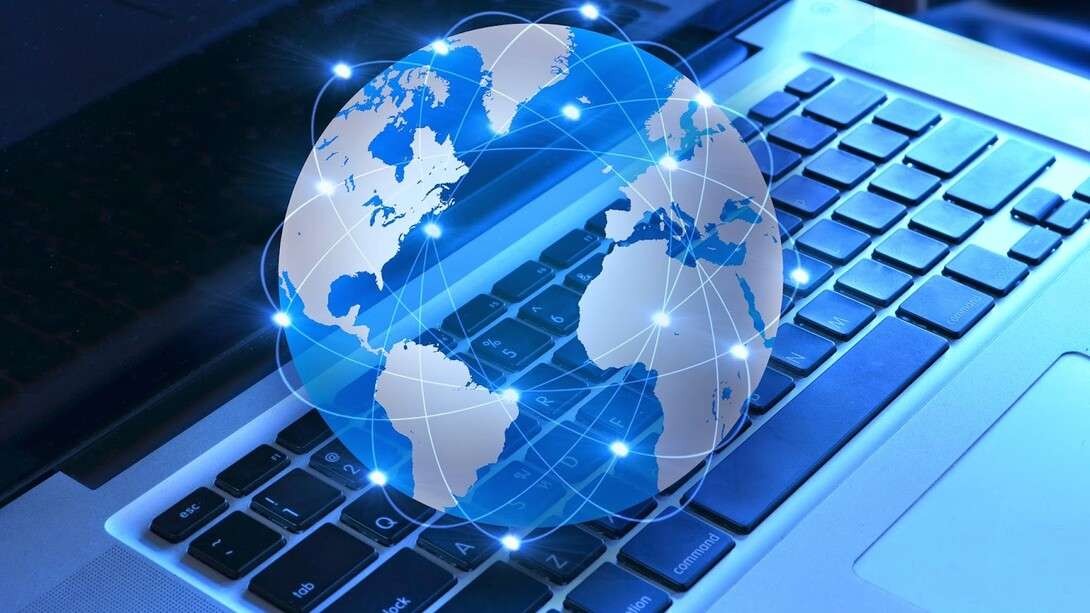Future Of the Internet : 1 Gateway to the World Wide Web
The emergence of the Internet has completely transformed our means of connecting, communicating, and obtaining information. It has become an indispensable part of our lives, enabling us to explore a vast digital landscape known as the World Wide Web (WWW). In this article, we will delve into the intricacies of the Internet, its evolution, the power of the World Wide Web, and the endless possibilities it offers
Introduction
In today’s digital age, the Internet serves as a global network of interconnected computers and devices. It acts as a virtual highway that facilitates the exchange of data and information across the globe. The Internet has transformed the way we live, work, and interact, connecting people from different corners of the world like never before.

What is the Internet?
The Internet can be defined as a vast network of interconnected computers that span the globe. Its roots can be traced back to the 1960s when it was developed as a means for military and academic purposes. Over time, it expanded rapidly, connecting various networks and evolving into the ubiquitous platform we know today.
The infrastructure of the Internet consists of a complex system of physical cables, routers, servers, and data centers. These elements work together to transmit and route data packets across vast distances, allowing users to access websites, send emails, stream media, and perform numerous other online activities.
The World Wide Web (WWW)
While the Internet forms the underlying infrastructure, the World Wide Web serves as the primary application that enables the retrieval and display of web pages. The WWW was created in 1989 by Sir Tim Berners-Lee, who envisioned a global system of interconnected hypertext documents accessible via the Internet.
The World Wide Web functions as a vast repository of information, connecting websites, multimedia content, and online services. It utilizes a system of hyperlinks, allowing users to navigate between web pages and explore a multitude of resources. Today, the WWW has grown exponentially, encompassing billions of web pages covering a wide range of topics and interests.
Internet Connectivity
To access the Internet, individuals and businesses rely on various types of internet connections. These connections can be categorized into two main types: wired and wireless. Wired connections, such as broadband and fiber-optic, provide stable and high-speed internet access. On the other hand, wireless connections, including Wi-Fi and mobile networks, offer flexibility and mobility.
In recent years, the demand for high-speed internet connectivity has surged, leading to the widespread adoption of broadband services. Broadband connections provide faster and more reliable access to the Internet, enabling users to engage in bandwidth-intensive activities such as streaming high-definition videos, online gaming, and video conferencing.
Internet Service Providers (ISPs)
Internet Service Providers, or ISPs, play a crucial role in connecting users to the Internet. ISPs, which are entities that offer internet access services to individuals, businesses, and organizations, are companies that operate exclusively in this field. They offer a range of connection options, including DSL, cable, satellite, and fiber-optic, catering to the diverse needs of users.
ISPs can be classified into different types based on the scope of their services. Some ISPs operate locally, serving specific regions or communities, while others operate on a national or international scale. Furthermore, there are ISPs that focus on residential connections, while others specialize in providing internet services to businesses.
Accessing the Internet
Accessing the Internet has become increasingly convenient and widespread due to advancements in technology. Various devices serve as gateways to the online world, including personal computers, laptops, smartphones, tablets, and smart TVs. These devices are equipped with web browsers that allow users to access websites, search for information, and engage in online activities.
Furthermore, the advent of wireless technologies has transformed the way we connect to the Internet. Wi-Fi networks enable users to access the Internet without the constraints of physical cables, providing freedom of movement within the range of a wireless router. Additionally, mobile networks empower users to stay connected on the go, ensuring internet access wherever cellular coverage is available.
Internet Applications and Services
The Internet offers a vast array of applications and services that have revolutionized the way we communicate, interact, and conduct business. Communication tools like email and instant messaging have streamlined our ability to connect with others across the globe. Social media platforms have transformed the way we share information, connect with friends, and build communities.
The advent of online shopping has completely transformed our shopping experience, enabling us to effortlessly explore and buy a wide array of products while enjoying the convenience of our own homes. Online marketplaces, such as Amazon and eBay, provide a convenient platform for buyers and sellers to engage in transactions. Additionally, online banking and digital payment systems have made financial transactions faster, more secure, and more accessible.
Impact of the Internet
The advent of the Internet has brought about significant transformations across multiple facets of our existence. In the realm of education, e-learning platforms have opened up new avenues for learning, making education more accessible and flexible. Students can now access online courses, participate in virtual classrooms, and collaborate with peers from around the world.
In the business world, the Internet has revolutionized the way companies operate. It has facilitated global connectivity, allowing businesses to reach customers beyond geographical boundaries. Online platforms and marketplaces have created new opportunities for entrepreneurs and small businesses, enabling them to showcase their products and services to a worldwide audience.
Entertainment and media have also undergone a significant transformation due to the Internet. Streaming services like Netflix and YouTube have revolutionized the way we consume media, offering a vast library of movies, TV shows, and user-generated content. The rise of social media platforms has given individuals a platform to express themselves, share their creativity, and connect with like-minded individuals.
Internet Security and Privacy
While the Internet brings numerous benefits, it also poses certain risks and challenges. Cybersecurity threats, such as malware, phishing attacks, and data breaches, have become increasingly prevalent. It is crucial for users to adopt best practices for online safety, such as using strong passwords, keeping software up to date, and being cautious while sharing personal information online.
Protecting privacy in the digital age has become a paramount concern. Users must be aware of the information they share online and take steps to safeguard their personal data. Encrypting connections, using virtual private networks (VPNs), and being mindful of privacy settings on social media platforms are some measures that can enhance online privacy.
The Future of the Internet
As technology continues to evolve, the Internet is poised to undergo further advancements and transformations. The advent of 5G technology promises faster and more reliable internet connections, enabling new possibilities in areas such as virtual reality, augmented reality, and the Internet of Things (IoT).
Artificial intelligence (AI) and machine learning are expected to play a significant role in shaping the future of the Internet. These technologies can enhance the efficiency of online services, personalize user experiences, and improve cybersecurity measures. However, ethical considerations and responsible AI deployment will be crucial to ensuring a positive and inclusive future for the Internet.
Conclusion
The Internet serves as a gateway to the vast world of the World Wide Web, offering endless possibilities for communication, information access, and entertainment. It has revolutionized the way we live, work, and interact, connecting individuals and communities on a global scale. However, it is essential to be mindful of security and privacy concerns, adopting best practices to navigate the digital landscape safely and responsibly.
FAQs
- Can I access the Internet without a broadband connection?
Yes, there are alternative methods of accessing the Internet, such as dial-up connections or mobile data plans. However, broadband connections offer faster and more reliable access. - How do ISPs provide internet connectivity?
ISPs utilize various technologies, such as DSL, cable, satellite, or fiber-optic, to deliver internet connectivity to their customers. - Is it safe to make online transactions?
While online transactions can be safe, it is crucial to ensure that you are using secure websites (https://) and following best practices for online security. - How can I protect my privacy online?
To protect your privacy online, use strong passwords, be cautious while sharing personal information, and regularly review privacy settings on social media platforms. - What is the future of the Internet?
The future of the Internet holds exciting possibilities, including advancements in connectivity, artificial intelligence, virtual reality, and the Internet of Things.
Previous blogs :- https://rkpedia.com/2023/06/11/electric-cars/
Social Handle :- https://twitter.com/ProfitMoneyGuru

